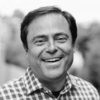In Praise of Low-Budget, Non-Professional Music Ministries
Teaching, celebrating, lamenting, sympathizing, encouraging, implanting, sharing, rejoicing, praising, catechizing, amazing, humbling, praying, instructing, defending, explaining, supporting, expressing, demonstrating, dramatizing, reminding, marking, solemnizing, involving, incorporating, witnessing, and memorizing.
These are just some of the things God uses music to do in and through Christians in the life of the local congregation. Too many pastors consider this ministry—and its importance—too little. Not so Martin Luther. The great German preacher once said, “I have no use for cranks who despise music, because it is a gift of God. Music drives away the Devil and makes people gay; they forget thereby all wrath, unchastity, arrogance, and the like. Next after theology, I give to music the highest place and the greatest honor.”
MUSIC IN THE BIBLE
What a wonderful gift God has given to us in music! The Old Testament is full of it, from Levites to King David. And we know that in the New Testament, the singing of a hymn concluded the Last Supper, and that the redeemed will compose a choir which will provide a soundtrack for our transition from time into eternity. Clearly the New Testament instructs us to sing and make music (Eph. 5:19; Col. 3:16; James 5:13). And this is not a tiresome task, but a great blessing. We’re being invited into a this-worldly expression of a next-worldly reality—the song of the Redeemed with the Lord!
Edward Hiscox, a prominent 19th-century Baptist minister in New York once wrote that
Singing should be congregational; that is, the people should sing—all the assembly should praise God in song. Singing is the people’s worship. The chant, the anthem, the oratorio, are rather for the cathedral and the temple. Though beautiful and sublime, they should be incidentally used in the Christian congregation. They inspire worship in the assembly, but the assembly does not to any considerable extent worship in them. The genius of the Gospel and of the Christian sanctuary requires chiefly the chorus, where the congregation shall not listen and have devotion excited, but where they shall sing and express devotion. (Baptist Church Directory, New York, 1859; p. 50)
So why does music sometimes not seem like that for the pastors and leaders of a local church? Could it be that we have more culturally determined forms for obeying those commands than we need to have, more than are really good for us? Could it be that other cultures and earlier times had a simplicity in their obedience to the music-related commands, something which actually increased the congregation’s joy? Should our church services feel like entertainment, a kind of concert?
A SELF-TEST
Let’s take a self-test. Are these words (associating them with your church’s ministry of music) good or bad? Serious. Expressive. Professional. Congregational. Excellent. I know that in my own experience, and for others in our congregation, the music of our congregation has a profound ministry to me. When I both hear the congregation singing and, even more, when I get to sing with them, I often feel like the Grinch on that wonderful Christmas when his heart grew three sizes that day. That’s my response to hearing our congregation sing “Immortal, Invisible God Only Wise” or “Jesus Paid it All.”
I recognize our church’s music ministry may be unusual these days, but it may be instructive to review some of this.
As a congregation, we sing probably around 15 hymns on the average Lord’s day (about 9 in our morning service and 6 in our evening prayer service). We sing all the stanzas, and, if the parts are good, we’ll often sing the last stanza a cappella. Sometimes people visiting wonder how it is that we can have a congregation where the average age of the attender seems to be under 30, and yet sing so many hymns with so little accompaniment (usually a piano and a guitar). What’s more, people seem to like it!
Daniel Bellamy, a member of our church and a good friend (even though he is half my age!) sent me an unsolicited and unexpected email about four years ago now. In it, he expressed how our music regularly serves him. He writes, “When I look at my prayers, and I get the feeling that my words aren’t even going past the ceiling, and I’m distracted, and there’s so much sin, and my prayers are so feeble, and only minutes have gone by at this point; I could remind myself of Hebrews 4:14–16, and Christ’s role as High Priest, but what a comfort it is to hum:
Before the Throne of God above,
I have a STRONG and PERFECT plea
A great High Priest whose name is Love
Who ever lives and pleads for me!
In finding hymns like this to serve his soul, I can’t help but think Daniel is representing what Paul was feeling that night he was singing in jail in Acts, and what so many of us have felt throughout our lives. The ministry of music in our churches is vast and deep and wonderful
VAST, DEEP, WONDERFUL . . . AND EXPENSIVE?
And we spend thousands of dollars on it every year. Let me be clear, out of our annual budget (normally about $3.5 million) we spend thousands of dollars to assist our congregation in ministering to each other through music. Indirectly, we support this by the time one of our pastoral assistants gives to formatting and printing the weekly bulletin (which we would have to do anyway), the time I spend initially crafting the services and picking the hymns, and by the staff’s time we use every Tuesday afternoon in finalizing the upcoming weekend’s services. There are probably other indirect costs I’m not thinking of.
We also spend thousands of dollars more directly on the music ministry of our church. We have decided not to limit our songs to coming from one hymnbook, so we incur fresh expenses for our CCLI license ($452 this year), which allows us the use of many hymns and songs not in the public domain. We spend another $1350 or so annually on piano tunings and sheet music. We also budget $2000 to cover sound and recording purchases and repairs. And, finally, we usually pay a lay member $300 a month to coordinate guitarists, pianists, and ensemble vocalists from a rotating group of members to help us in this way. So, about $7,400 this year in a church of about 950 members with a $3.5 million dollar budget (and, again, this figure doesn’t account for my and my staff’s time spent in quarterly and weekly planning). So, we spend about 0.2% of our annual budget on our music ministry. And the congregation’s singing is perhaps the most outstanding thing about our times together, at least according to what visitors tell me at the door.
This amount of money would seem like a lot to our persecuted brothers and sisters around the world, who would get arrested if they sang as loudly as we do. And it must seem scandalously small to many American churches. But by keeping our music ministry focused on true words, singable music (of various styles), and the congregation’s voices, we have music that’s simple and easily reproducible. Church plants or renewals that go out from us (we’ve been involved directly or indirectly in seven so far in the DC area in the last 20 years) can easily reproduce our music, if they want to.
NOT THE BEST OR ONLY WAY
Over the past many years while I’ve served as a pastor, I trust—in fact I know—that some members have left CHBC and found churches with music ministries they preferred. That’s okay. In fact, I’m thankful for the way God gifts different churches differently. Some churches will have more robust accompaniment, different instruments, and perhaps even a different canon of hymns, both modern and ancient, that they choose from.
I’m not saying the way my church “does” music is the only way, or even the best way. What I am saying is that the quality of music and especially the quality of singing is not dependent upon the size of your music budget. In fact, I would argue that meager accompaniment can have the odd effect of requiring more from the voices in the congregation, improving both the volume and quality of the singing. If our singing is exceptional in any way, perhaps this is not in spite of our methodology, but because of it.
Having a less than full, professionalized “music ministry”:
- saves us money, and allows us to spend that money elsewhere;
- saves the time of many people, and allows that time to be better spent elsewhere;
- prevents a sub-culture growing up in the church marked by carnality, envy, and a worldly performance culture;
- highlights the singing of the congregation (which really undermines any entertainment tendency);
- has again and again been an unusually moving encouragement to many.
So, in summary: the pastor is the hymn-picker and the congregation is the choir that is performing for each other. The percentage of folk’s time used in producing this is tiny. And the culture it helps produce in our church is priceless.
* * * * *
Author’s Note: Look tomorrow for a follow-up article: 9 Choices for a Healthy Music Ministry.









